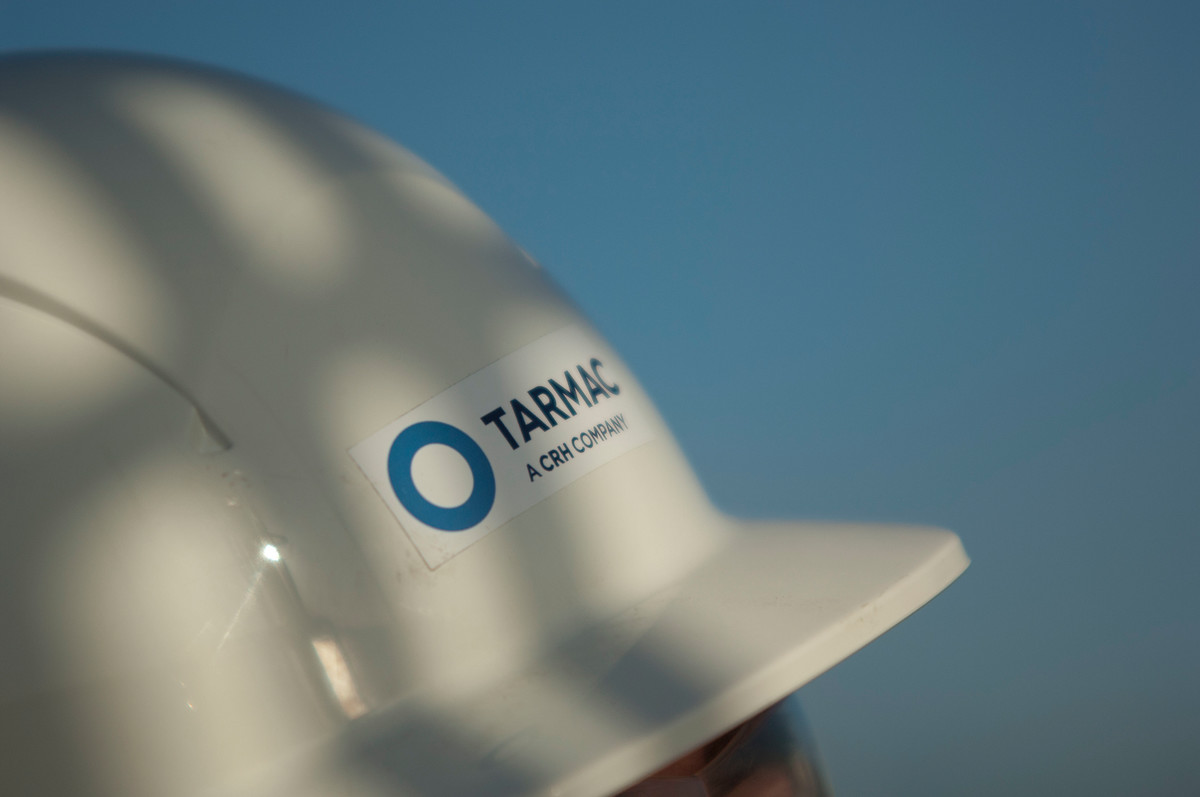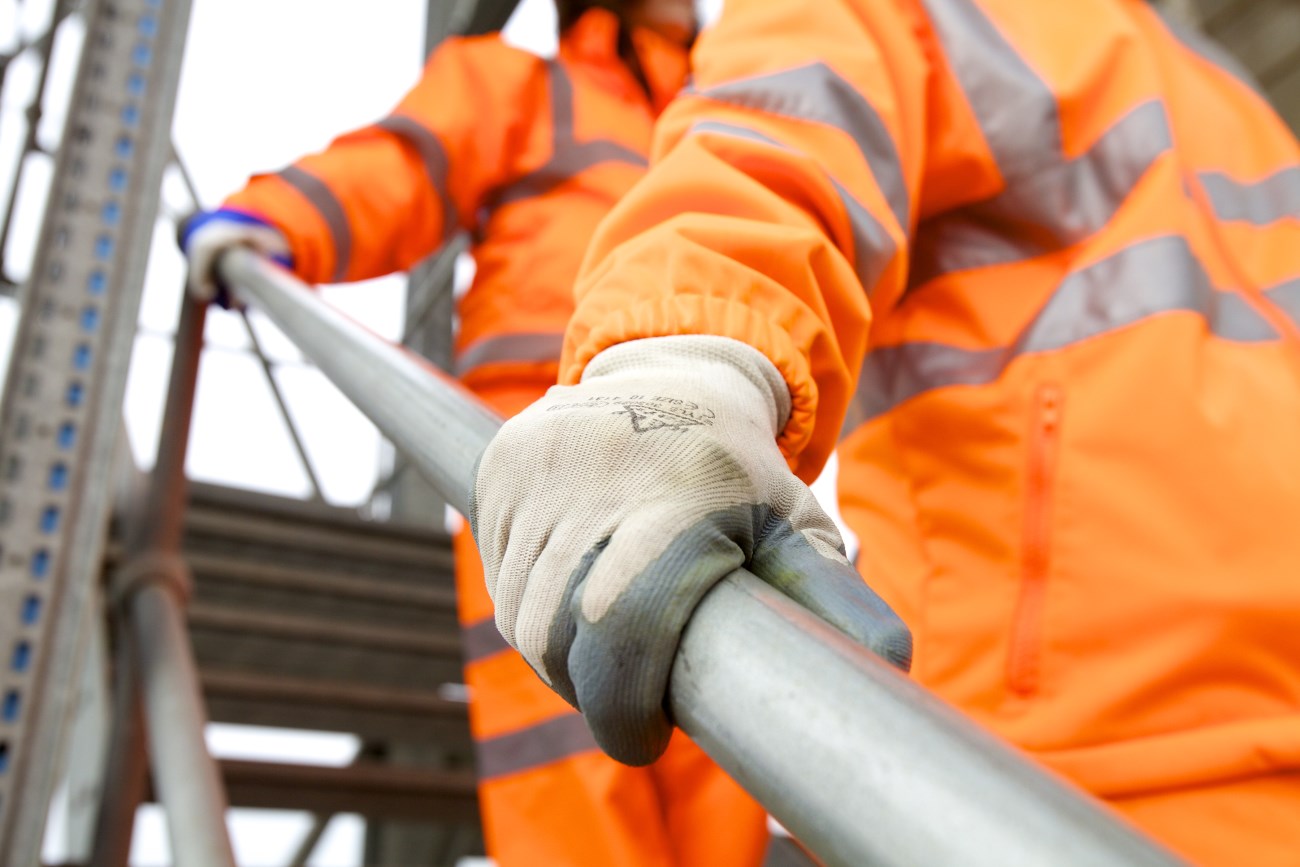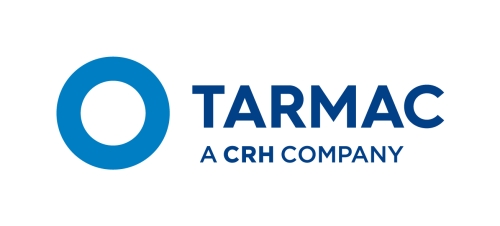health and safety
"We must be vigilant in our focus on our own safety, and the wellbeing of colleagues and contractors. Tarmac is a business where no job is done unless it can be done safely."
Martin Riley, Senior Vice President
highlights
It is with great sadness that we must report the fatalities of two contractors while working at our sites in 2017. One young man lost his life while working on equipment at Mountsorrel quarry in Leicestershire, and an HGV recovery operative working for a third party was fatally injured while collecting their equipment from our Bawtry site in South Yorkshire. Our thoughts and deepest sympathies are with the men’s families and friends, and everyone impacted by these tragic losses. The incidents profoundly affected our people and our site teams and, while some aspects of investigations into these incidents are ongoing with our contractors, we will ensure that we learn and translate any lessons into actions to ensure that people return home safely at the end of their working day.
We monitor and report the safety performance of all of our operations and include employees, contractors and hauliers in our reporting. Across our business operations in 2017, we reduced our Total Recordable Case Frequency Rate (TRCFR) for employees, contractors and other workers to 1.05 incidents for every million hours worked. This represents a 23% reduction from 2016. There were 28 recordable incidents across the business in 2017, down from 36 in 2016. Whilst we have improved our performance, we remain committed to further driving continuous improvement to reduce rates and achieve our commitment of Work Safe Home Safe Our Lost Time Injury Frequency Rate (LTIFR) also reduced from 0.64 to 0.49 in 2017 with the total lost time injuries reported down from 17 to 11 during the period.
Our continued focus on improving health and safety performance was recognised at the Mineral Products Association (MPA) Health & Safety Awards 2017, where our National Contracting business won the Asphalt and Contract Surfacing Award for it’s 5 + 2 transport safety segregation initiative. Nationally, the Transport safety team received a merit certification for development of it’s high-speed network film that was used to educate in excess of 2,000 drivers across the Tarmac business.

Throughout 2017 we continued to roll out our health management programme. A revised Drugs and Alcohol Policy was launched in February 2017, setting out our rules on drug, alcohol and substance misuse, how we test for them, and what to do if someone has a problem with drugs and alcohol addiction or abuse. The launch was supported by employee briefings and an awareness campaign reminding employees about the dangers of drug or alcohol abuse and the help available offered by Tarmac should people need it. In 2017, we carried out health surveillance and/or “Fit for Work” medicals on 5,235 operational employees (approximately 92% of our operational population).
Health surveillance during 2017 included the commencement of a chest x-ray programme in line with the HSE’s guidance for employees with potential exposure to respirable crystalline silica.
Key data from the health assessment process is now shared with the Tarmac Executive Committee every month, to help ensure better visibility of the outcomes of the health surveillance process, drug and alcohol testing and any emerging health issues.
In 2017, Tarmac became a Business Partner with Mates in Mind, a charitable organisation working to raise awareness and address the stigma of poor mental health and improve positive mental well-being within the UK construction sector. A three-stage programme of raising awareness, training and providing mental health first aiders across Tarmac will be launched in 2018.
Mental health was also one of the key topics covered in the 2017 Health & Safety Engagement Week. Other health topics to receive focus during the week were Hand-Arm Vibration and Dust/Respirable Crystalline Silica (RCS). In addition, two days of interactive workshops were held at one of our quarries in Yorkshire to raise awareness of the health impacts of dust and RCS, how dust and RCS can be managed, and a chance to look at various dust management techniques in action across the site. In addition to site managers from across Tarmac attending, the invite was extended to a number of key contractors working in our quarries, and to fellow members of the Institute of Quarrying in the area.


Tarmac is committed to the MPA safer by competence industry programme. Zero Harm is the overarching health and safety priority for the mineral products industry. In its sector-leading drive to help achieve Zero Harm, the MPA has devised an ambitious ‘Safer by Competence’ policy to deliver demonstrable personal competence across the high proportion of industry represented by the Association. The campaign comprises a series of targets encompassing employees and contractors across all products and services within the MPA’s wide footprint.
‘Safer by Competence’ sets out routes to meeting National Occupational Standards relevant to job functions, with a range of targets applicable to all in operational employment. For the great majority of MPA members, NVQ/QCF/SCQF vocational qualifications routes provide the logical solutions and these represent the preferred approach.
During 2017
- 518 NVQ's were delivered to operational employees
- All mobile plant operators across all BU's were enrolled in a competency-based operator licence scheme
- The SHE qualification suite was identified as the qualification required for managers/supervisors in our building products business - this falls in line with the rest of the Tarmac businesses (excluding contracting)
